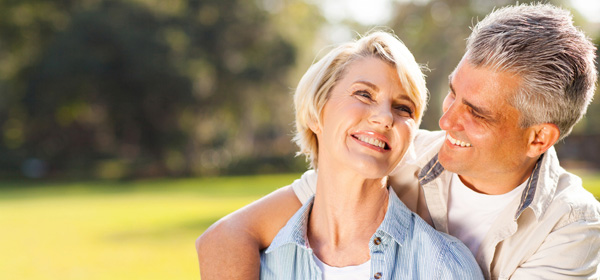It has been said that men age like a fine wine, while women age like milk – not a particularly appealing sentiment but one it seems may have some merit.
While we know that menopause can dramatically affect the way a woman feels and looks, a change in hormones can also affect the way in which a man ages. Just as older women produce less oestrogen, older men produce less testosterone. In both men and women, the reduced production of these hormones can result in weight gain, lower sex drive, less energy and mood swings, but it’s the rate at which these changes occur that can often paint men in a more flattering light.
Weight gain
Men usually gain weight until their mid-50s but it does start to drop off again, often coinciding with the gradual reduction of testosterone. Women on the other hand tend to have a more sudden weight gain, especially around their waistlines, at the onset of menopause. Also, women gain weight until their mid-60s before they too start to lose it. In both instances the weight loss is often related to reduced muscle mass.
Sex drive
While men under 60 think about sex at least once a day, only a quarter of women give it that much thought. At the time of the menopause, women experience quite dramatic physical effects, which can make sex quite uncomfortable. On the other hand, while men may have a reduced vigor in their erection, this doesn’t generally happen until later in life and there are always those little blue pills they can pop.
Skin
This is perhaps the most noticeable difference in the way men and women age, and there are a few reasons why. A man’s skin is generally about 25 per cent thicker than a woman’s and thins more gradually, whereas a woman’s will thin significantly around the time of menopause. Men also have a higher ratio of collagen than woman, which means the ageing effect of wrinkles aren’t so noticeable on men. And lastly, a man can always grow a beard to hide his wrinkles – whereas a woman’s increased facial hair is not considered an asset!
Hair
This is the one area where women tend to score a win. While a woman’s hair will thin, go grey and change texture with age, hair treatments can negate these changes. Women are also less likely to go bald, whereas men will start losing their hair, with half showing some hair loss by the time they’re 50. Men are more likely to experience hereditary hair loss, so if their dad was a baldy, chances are they will be too.
Related articles:
Ageing: what’s normal, what’s not
Ageing: all in the mind?

